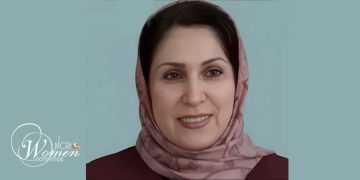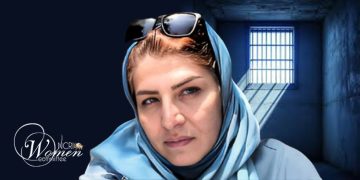On Sunday July 27, 2025, two political prisoners, Massoumeh Asgari, a retired teacher, and Massoumeh Nassaji (Farah), were sent to solitary confinement in Qarchak Prison (in Varamin, located southeast of Tehran) after protesting inhumane conditions inside the facility.
The two women had raised objections to the prison’s dire hygiene, poor nutrition, and ongoing threats from prison officials. Their transfer to solitary was a punitive measure ordered by prison authorities.
On Sunday, July 27, a group of women political prisoners in Qarchak Prison held a protest ceremony condemning the sudden executions of two political prisoners, Mehdi Hassani and Behrouz Ehsani, in Ghezel Hesar Prison.
Massoumeh Asgari: The Imprisoned Teacher Who Protested
Massoumeh Asgari, was once again arrested in August 2024 by security forces. The charges against her include “collaboration with anti-regime groups” and “membership in opposition groups.”
Her case was referred to Branch 26 of the Tehran Revolutionary Court, but one year on, no trial date has been set.
Asgari, who is the sole breadwinner for her family, has been enduring a series of health issues. She suffers from chronic conditions such as diabetes, kidney and liver problems, and neurological disorders. These health concerns have been exacerbated by previous injuries, including multiple fractures in her legs, for which she required surgery. Despite the severity of her condition, she has been denied access to necessary medical treatment.
Her continued imprisonment and the uncertain legal proceedings exemplify how the misogynistic Iranian regimeuses prolonged pre-trial detention as a systematic tool of repression, especially targeting women dissidents.
Massoumeh Nassaji: Survivor of Torture and Prolonged Solitary
Massoumeh Nassaji (Farah),a 62-year-old political prisoner, was sentenced to 5 years and 4 months after her arrest in Tehran province. Since September 2022, she has been held in prison. During her interrogation, she was subjected to 48 days of solitary confinement and intense pressure to extract forced confessions.
Massoumeh Nassaji has also been denied the right to a lawyer of her choice.
Ms. Nassaji suffers from respiratory problems and acute bronchitis. The forensics’ recent approval of her plea should have led to her release, but the prosecutor’s opposition has kept her behind bars.
























